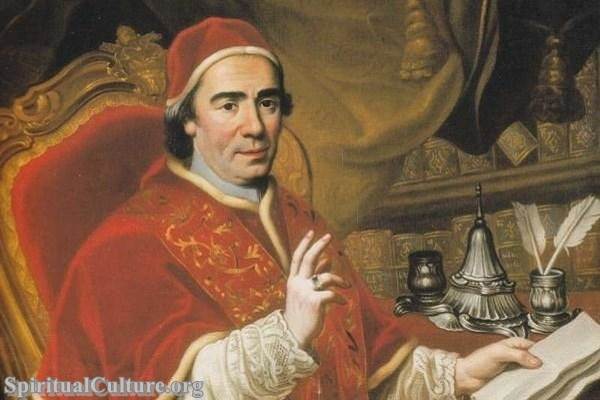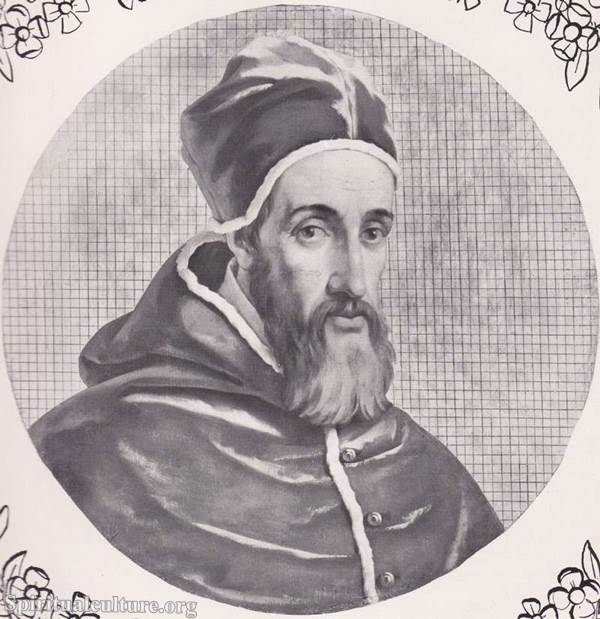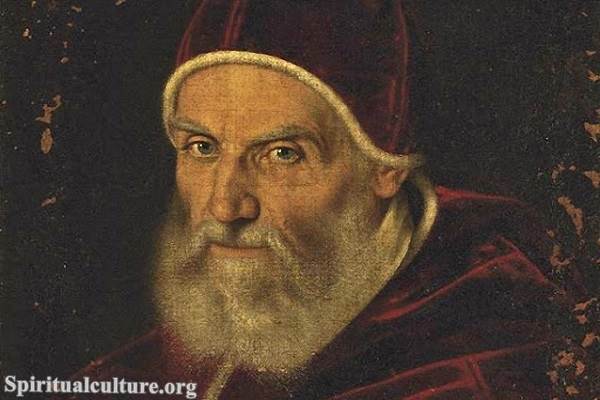From his humble beginnings as a monk to his ascension to the papacy, Clement XIV’s life was characterized by deep religious conviction, political savvy, and a profound commitment to the Catholic faith.

Pope Clement XIV (1705-1774)
This blog post will delve into the life and legacy of Pope Clement XIV, examining his contributions to Catholicism and his enduring influence on the Catholic Church.
Early Life and Path to Catholicism
Giovanni Vincenzo Antonio Ganganelli was born on October 31, 1705, in Rimini, Italy. He was drawn to the Catholic faith from a young age and decided to enter religious life at the age of 19. He joined the Conventual Franciscans, a branch of the Catholic Church known for its commitment to poverty, chastity, and obedience. Ganganelli’s deep faith and intellectual prowess quickly caught the attention of his superiors, and he was sent to Rome to study theology and philosophy.
Contributions to Catholicism
Ganganelli was elected as the Supreme Pontiff on May 19, 1769, taking the name Clement XIV. His papacy was marked by a desire for reform within the Catholic Church, and he made several significant changes that left a lasting impact on Catholicism.
One of the most significant actions of Pope Clement XIV was the suppression of the Society of Jesus, also known as the Jesuits, in 1773. This was a controversial decision, as the Jesuits were a powerful order within the Church known for their educational, missionary, and charitable works. However, Pope Clement XIV believed that the Jesuits had become too powerful, causing discord within the Church. His decision to suppress the order was met with both praise and criticism, reflecting the complex politics of the Catholic Church at the time.
Pope Clement XIV also made strides in improving the Church’s financial situation. He implemented several reforms to reduce the Church’s debts and ensure its financial stability. His prudence and financial acumen were greatly appreciated by the Catholic community and helped to restore confidence in the Church’s ability to manage its resources.
Pope Clement XIV and the Catholic Church
Pope Clement XIV’s influence on the Catholic Church extended beyond his papacy. His commitment to reform and willingness to make difficult decisions left a lasting legacy. While controversial, his suppression of the Jesuits set a precedent for the Church’s ability to regulate its own orders and maintain internal harmony.
Moreover, Pope Clement XIV’s financial reforms had a lasting impact on the Catholic Church. His measures to reduce the Church’s debts and improve its financial health set a precedent for future popes and helped to establish the Church’s reputation for financial prudence.
Pope Clement XIV’s deep faith and commitment to the Catholic Church were evident throughout his life. He was known for his humility, piety, and dedication to Catholic principles. Despite the challenges and controversies he faced during his papacy, he remained steadfast in his faith and committed to the Church.
Conclusion
Pope Clement XIV was a significant figure in the history of Catholicism and the Catholic Church. His life and papacy were characterized by a deep commitment to the Catholic faith, a desire for reform, and a willingness to make difficult decisions. His legacy continues to influence the Church today, reflecting his enduring impact on Catholicism.





